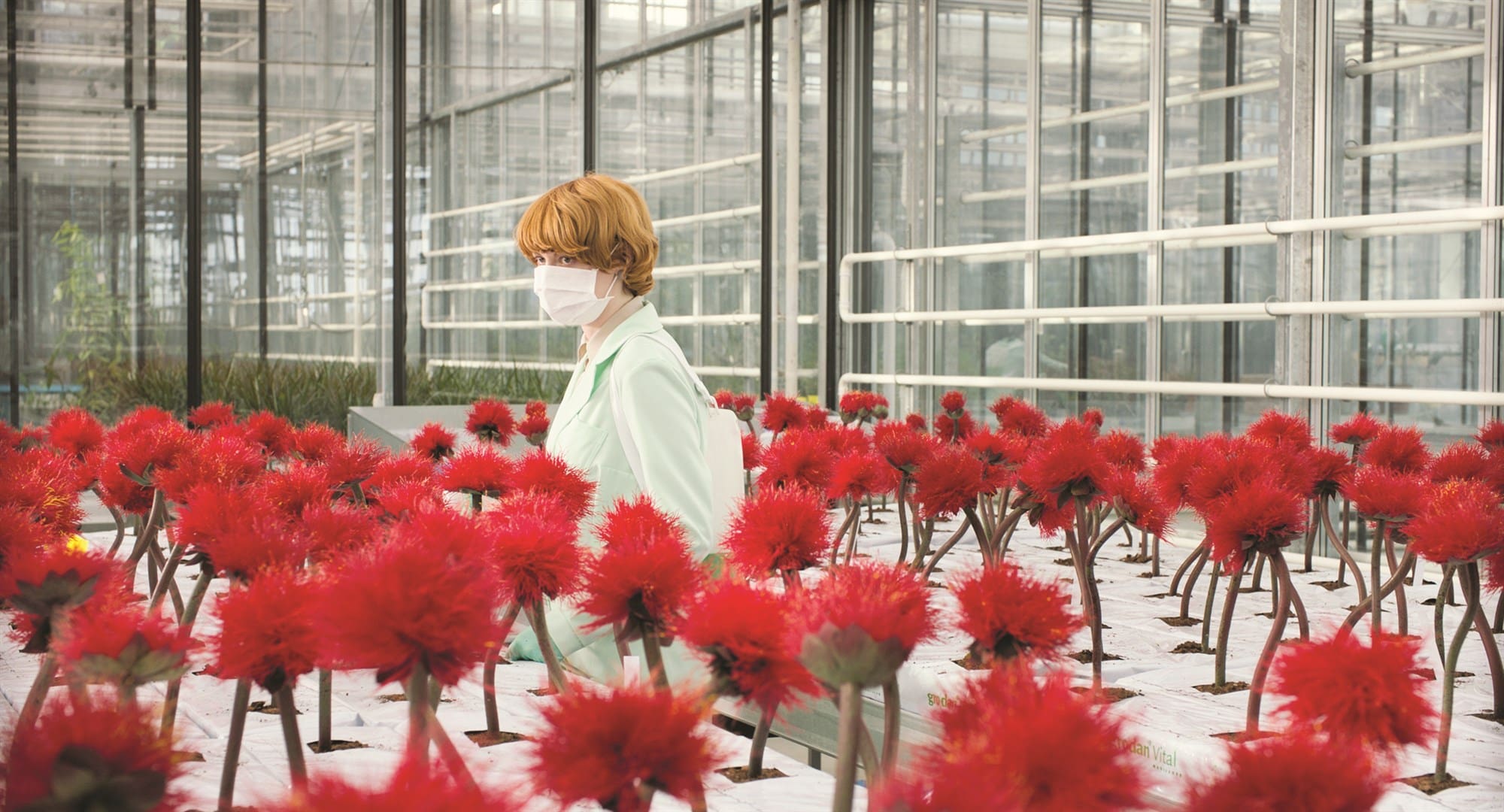
Director Philip Kaufman’s 1978 film, Invasion of the Body Snatchers, is a deeply unsettling paranoid thriller. A remake of the 1956 film of the same name, the alien invasion that drives its plot is subtle yet sinister: the human race is slowly being replaced by pod versions that look but don’t act like the originals. The parasitic aliens’ sole motivation is to colonize the planet and because the conversion happens while people sleep, resistance is virtually impossible. It’s the stuff of nightmares and it’s hard to imagine anyone finding a positive side to that core story—but that’s precisely what writer-director Jessica Hausner’s new film, Little Joe, attempts to do.
In this case, it’s not an alien that threatens to take over people’s minds, but a genetically-modified flower. That bright, red flower is the creation of scientist, Alice Woodard (Emily Beecham), a single mother who named the plant after her young son, Joe (Kit Connor). Though Little Joe’s original intent was to make people happy by releasing a joy-inducing scent the more that plant is cared for, Alice grows concerned when there are signs that exposure may permanently alters people’s personalities.
While the pod aliens in Invasion are presented as sinister from the beginning, Little Joe is deliberately less clear and the film is, in many ways, an exploration of gaslighting. Indeed, Alice (and by proxy, the audience) spends much of the film second-guessing her work and her emotions. When one of her coworkers, Bella (Kerry Fox), first questions whether Little Joe may in fact have found a way to circumvent its inability to reproduce, Alice is defensive of her work and her creation, doubling down by sneaking a plant home to give to Joe. Sure, there seems to be something to Bella’s accusation that the plant has made the other scientists slaves to its interests, but as Alice’s male coworkers (particularly a subdued but excellent Ben Whishaw) keep reminding her, Bella is psychologically unstable, a classic hysterical woman crying witch for no reason at all.
Still, while Alice’s reluctance to believe something is wrong with her creation is understandable, it does admittedly make her a frustrating protagonist even if Beecham plays her incredibly well. There’s a subtle pride in Alice’s demeanor that makes it easy to believe that not only would she stretch scientific mandates in order to achieve her goals, but that she would be too confident in her work to believe it could turn on her. Likewise, seeing her genuine affection for her son, it’s understandable if hard to forgive that Alice is so reluctant to consider that her actions have hurt her child even as Joe goes from a sweet boy seemingly devoted to his mother to moody and secretive. It’s a delicate line and one that Beecham and the film itself constantly walk—even down to the production design.
Where Kaufman’s film is drab and realistic, Hausner’s is candy-colored. Alice and her coworkers are most often dressed in lighters shades, pastel green lab coats over a pink or light blue shirt. Their surroundings, meanwhile, are sterile white, clean and clinical. In fact, the most vibrant color in the film is LIttle Joe’s deep red. On one hand, you can read that color as a warning, an external expression of the threat to humanity Little Joe represents. On the other, the colorful, ordered world Hausner creates could seem enticing in its simple beauty—it all depends on how you look at it.
Indeed, on every level, whether Little Joe will work for a given viewer is a question of perspective. Viewed from the traditional Invasion standpoint, the way Little Joe makes people slaves to its continued propagation is undeniably dangerous. On the other, if the only side effect is that it makes people happy, then what’s the harm? Still, whether Hausner’s thought experiment works depends on how willing viewers are theoretically open to the idea that sacrificing free will is worth easier contentment. For some, that trade-off will simply be too great for the premise to work. However, even for viewers who don’t ultimately agree with Hausner’s point, the question she poses is so thought-provoking, that the way it shifts the viewer’s thinking seems almost as powerful as Little Joe’s pollen.

